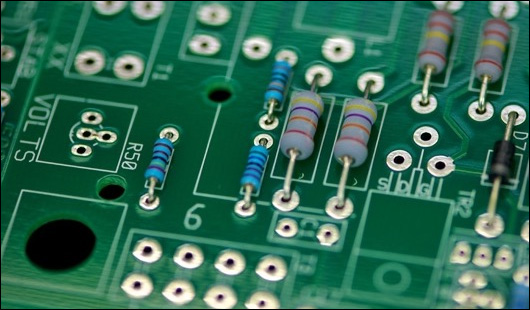Electronics, Industry News
The Resilience of Through-Hole PCB Assembly in Industrial Applications
In the fast-paced world of electronics manufacturing, surface-mount technology (SMT) has become the dominant method for assembling printed circuit boards (PCBs). However, despite the growing popularity of SMT, through-hole PCB assembly remains a crucial and indispensable technique, especially for industrial customers. This article explores the enduring importance of through-hole PCB assembly in industrial applications.
- Reliability and Durability
One of the primary reasons through-hole PCB assembly is still vital in industrial settings is its reliability and durability. Industrial equipment operates in demanding environments with high levels of vibration, temperature variations, and exposure to contaminants. Through-hole components are mechanically anchored to the PCB through holes, making them more robust and resistant to mechanical stresses compared to SMT components, which rely solely on solder connections. This robustness ensures that through-hole components are less prone to damage and less likely to fail under harsh conditions.
- High-Power Applications
Industrial machinery often requires high-power components such as relays, connectors, and transformers. Through-hole components can handle higher levels of current and voltage due to their larger physical size and more substantial connections. This makes them well-suited for applications that demand robust electrical performance, like motor controls, power supplies, and high-frequency converters.
- Prototyping and Testing
In the early stages of product development, engineers and designers often need to quickly prototype and test their designs. Through-hole components offer several advantages in this context. They are easier to work with, allowing for rapid manual placement and soldering, which speeds up the prototyping process. Additionally, through-hole components facilitate easier troubleshooting and modifications, which is essential during the iterative design phase.
- Longevity and Availability
Many industrial applications require equipment with long lifecycles, sometimes spanning decades. Through-hole components have been in use for many years and are well-established in the market. This means that they have a track record of long-term availability and support, making it easier for industrial customers to maintain and service their equipment over extended periods without worrying about component obsolescence.
- High-Temperature Environments
Industrial processes often generate significant heat, and equipment used in these settings must be able to withstand high-temperature conditions. Through-hole components, particularly those designed for high-temperature soldering processes, can better tolerate elevated temperatures compared to some SMT components, which may be limited by their soldering materials and methods.
- Mixed Technology PCBs
Many industrial PCBs require a mix of through-hole and SMT components to meet specific performance and size requirements. Through-hole components offer the flexibility to integrate various technologies on a single board effectively. This enables designers to achieve a balance between high-performance SMT components and rugged through-hole components to optimize their designs.
While surface-mount technology has revolutionized PCB assembly and is dominant in many industries, through-hole PCB assembly remains a crucial technique, especially for industrial customers. Its reliability, durability, high-power capabilities, suitability for prototyping, and ability to withstand demanding environments make it an indispensable choice for various industrial applications.
As industrial equipment continues to evolve and adapt to new challenges, the resilience and versatility of through-hole PCB assembly ensure that it will remain an essential part of the electronics manufacturing landscape for years to come, supporting the growth and innovation of industries around the world.

